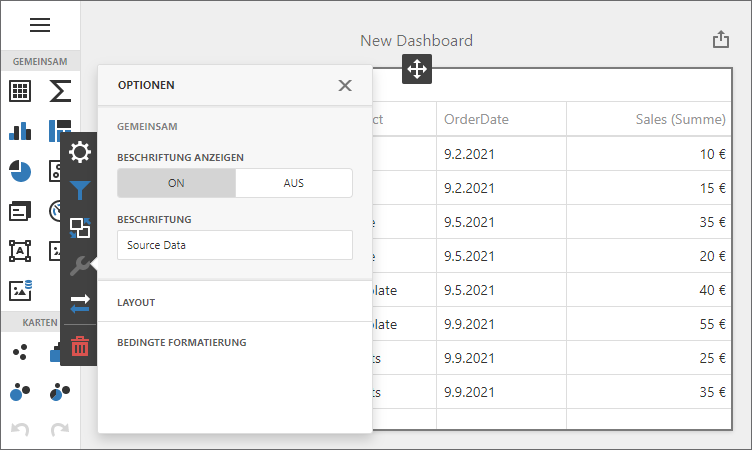Localize ASP.NET MVC Dashboard Extension
- 2 minutes to read
You can localize your applications - update their UI to match certain culture and language settings:
- Translate UI element captions to a different language: dialog boxes, buttons, menu items, error messages, etc.
- Format numbers, dates, and currencies according to specific culture settings.

Localize UI
DevExpress provides satellite resource assemblies for a variety of languages and cultures.
The DevExpress .NET Products installer registers assemblies for several cultures (German, Spanish, Japanese, and Russian) into the GAC, and also places them in the installation folder (“C:\Program Files (x86)\DevExpress 20.2\Components\Bin\Framework", by default). You can find these assemblies in the following subfolders:
| Subfolder name | Culture |
|---|---|
| de | German |
| es | Spanish |
| ja | Japanese |
| ru | Russian |
To download satellite assemblies for other cultures, use the DevExpress Localization Service. This service allows you to modify existing translations, and compile and download satellite assemblies.
Modules to translate:
- Dashboard.Core
- Dashboard.Web
- DataAccess
- Web.Resources
After you get the translations, follow the steps below:
- Copy the folder that contains satellite assemblies (for example, “es”) to the application’s bin folder.
- Set a culture for the application. You can use declarative or programmatic approaches. See the following topic for a code example: Localize ASP.NET Controls using Satellite Resource Assemblies.
KB article: Best practices to change the current Culture in ASP.NET MVC Application using ComboBox Extension
Localize Dates, Numbers, and Currencies
The ASP.NET MVC Dashboard extension uses Globalize to format to dates, numbers, and currencies:
- Automatic script registration: Globalize is included when you register third-party libraries.
- Manual script registration: reference Globalize scripts on the web page.